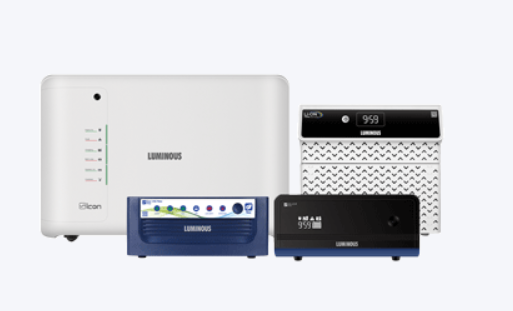Inverters play a vital role in managing and converting electrical power to meet the diverse needs of households. These devices are indispensable for ensuring a stable and reliable power supply, particularly during times of electrical grid fluctuations or outages. Single phase inverters, in particular, have gained immense popularity among homeowners due to their efficiency and suitability for typical household appliances.
These inverters are adept at converting direct current (DC) electricity from sources like batteries or generators into alternating current (AC) power, which is the standard for most home electronics and appliances. Their compact size, ease of installation, and cost-effectiveness make single phase inverters a practical choice for residential applications. By providing a seamless transition between power sources, these inverters contribute significantly in maintaining uninterrupted electricity flow within homes.
Read on further to understand more about the reasons why single phase inverters are more common in residential settings and its key features.
Reasons Why Sinngle Phase Inverters are More Common in Residential Settings
Single-phase inverters are more common in residential settings for several reasons unrelated to solar power solutions:
- Standard Residential Power Supply: Residential homes are supplied with single-phase power as the standard electrical configuration in many areas. Single-phase power is sufficient for meeting the typical household energy demands, which makes single-phase inverters more compatible with residential electrical systems.
- Lower Cost and Complexity: Single phase inverters are generally less expensive and simpler to manufacture than their three-phase counterparts. The reduced complexity makes them more cost-effective for residential installations, where the power demands are typically lower compared to industrial or commercial settings.
- Ease of Installation: Installing single-phase inverters is often more straightforward compared to three-phase inverters. The electrical wiring and connections are simpler, making it easier for electricians and homeowners to set up the system without requiring specialised knowledge or equipment.
- Widespread Appliance Compatibility: Many household appliances and devices are designed to operate on single-phase power. Using single phase inverters ensures seamless compatibility with a wide range of residential appliances, from lighting fixtures to kitchen appliances and electronic devices.
- Residential Load Characteristics: The power consumption patterns in residential settings often involve a mix of lighting, heating, and electronic devices, which are well-suited for single-phase power distribution. The loads in typical homes usually require less power balancing benefits than three-phase systems provide in industrial applications.
- Space Constraints: Residential spaces may have limited room for installing complex electrical systems. Single-phase inverters are generally smaller and more space-efficient, making them a practical choice for residential environments where space is a consideration.
- Energy Storage Systems: In residential settings, where energy storage systems (such as batteries) are becoming more common, single phase inverters are often used because they are more compatible with the standard household power supply. This allows for smoother integration of energy storage solutions into the residential electrical system.
- Regulatory and Standards Compliance: Local regulations and electrical standards in many regions are aligned with single-phase power distribution for residential areas. Using single-phase inverters ensures compliance with these regulations without the need for additional modifications or adjustments.
Key Features of Single Phase Inverter
Single phase inverters play a crucial role in converting direct current (DC) electricity into alternating current (AC) electricity for various applications in the Indian landscape. Here are the key features of single-phase inverters:
- Voltage Output: Single phase inverters are designed to produce a stable output voltage in the range suitable for residential and small commercial applications. In India, the standard voltage for single-phase power is 230V AC.
- Power Rating: These inverters come in a range of power ratings, typically from a few hundred watts to a few kilowatts. The power rating is essential for matching the capacity with the specific requirements of the connected load.
- Applications: Single-phase inverters are primarily used in domestic settings, small businesses, and other locations where the power demand is relatively low. Common applications include powering household appliances, lighting, and small commercial equipment.
- Efficiency: Efficiency is a critical factor, and single phase inverters are designed to operate with high efficiency to minimise energy losses during the conversion process. Higher efficiency ensures that more of the generated power is effectively utilised.
- Grid Connectivity: Single-phase inverters are typically designed for grid-connected systems. They allow for seamless integration with the electrical grid, enabling users to either use the generated power locally or feed excess electricity back into the grid.
- Monitoring and Control: Many modern single phase inverters come equipped with monitoring and control features. This may include the ability to connect to a monitoring system or a smartphone app, allowing users to track the performance of the inverter and adjust settings remotely.
- Protection Features: Inverters incorporate various protection mechanisms to safeguard against overvoltage, overcurrent, short circuits, and other electrical faults. These features enhance the reliability and longevity of the inverter.
- Cost-Effectiveness: Considering the widespread use of single-phase inverters in residential settings, cost-effectiveness is a key feature. These inverters are designed to provide reliable performance at a reasonable cost, making them accessible to a broad range of consumers.
Empowering Homes: The Appeal of Single Phase Inverters
The widespread popularity of single phase inverters among homeowners can be attributed to their efficiency, affordability, and versatility. The simplicity of installation and ease of maintenance further contribute to their appeal. As homeowners seek reliable solutions to meet their everyday energy needs, single-phase inverters stand out as a practical and cost-effective choice.
For a reliable and innovative single phase inverter solution, consider exploring the range offered by Luminous. Experience the power of seamless energy conversion for your home with single phase inverters – the smart choice for a brighter and more efficient future.



